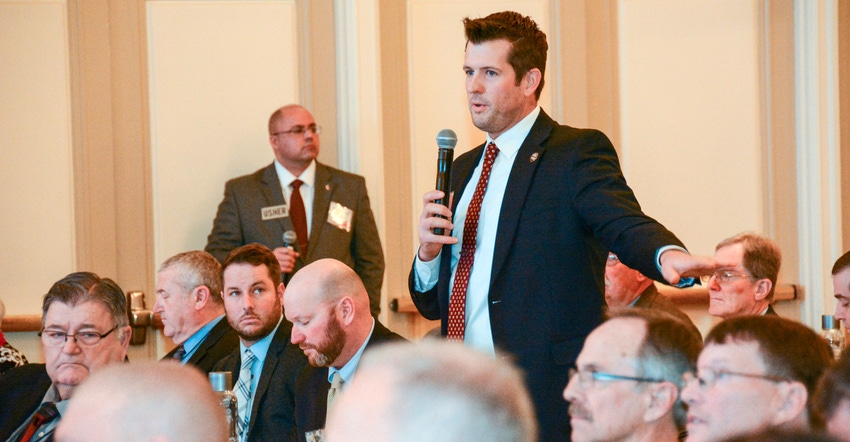
Delegates to the Illinois Farm Bureau resolutions process last week brought thoughtful and intense debate to an unusual subject: recreational marijuana. The topic peppered conversations throughout the weekend’s IFB annual meeting, in hallways, during fundraisers and amid district meetings.
“I think everyone here is morally opposed to recreational marijuana,” said Grant Strom, Knox County delegate, during the debate. Despite the moral opposition, Strom said he still wanted IFB to have a chance to shape rules on taxation and regulation if — and likely when — recreational marijuana becomes legal.
Gov.-elect J.B. Pritzker supports legalization of recreational marijuana as a revenue stream for the state, projecting $100 million in tax revenue. State Sen. Jil Tracy told Illinois farmers she believes the bill will likely pass in January, though she remains a strong no vote.
“One hundred million dollars is a lot of money, but it’s not enough for a significant infrastructure project,” she said, adding legalized marijuana will likely require more funding for law enforcement, mental health and truancy. Farmers remain concerned about employee management, drug testing and employees’ ability to operate heavy equipment, plus ramifications for their rural communities.
Mark Gebhards, Illinois Farm Bureau executive director of governmental affairs, anticipates a bill after the first of the year but says details on taxation, disbursement and regulation remain to be seen. IFB’s nearly 350-member delegate body ultimately decided to retain language in their policy book opposing “the use, production and distribution of marijuana for recreational purposes.” They also added language that supports the responsible taxation and regulation of recreational marijuana, in the event that it becomes legal.
From a lobbyist’s standpoint, Gebhards says opposition limits IFB’s discussion in other areas to a certain extent. “We will try to ensure it’s properly regulated. That will go through the Illinois Department of Agriculture, so there’s an agricultural component to it,” he says.
IFB’s opposition to the issue will cause some legislators to question why recreational marijuana is an agricultural issue, and Gebhards says they’ll explain the quality-of-life issue for rural Illinois. He notes IFB has other policies that reflect quality of life and the deep-principled positions of its members.
“Whether it’s an ag issue or not, the cost to society impacts our members because we live in the state,” he says.
“At the end of it all, we want to make sure ag’s role is defined on the regulatory side,” Gebhards concludes.
About the Author(s)
You May Also Like






